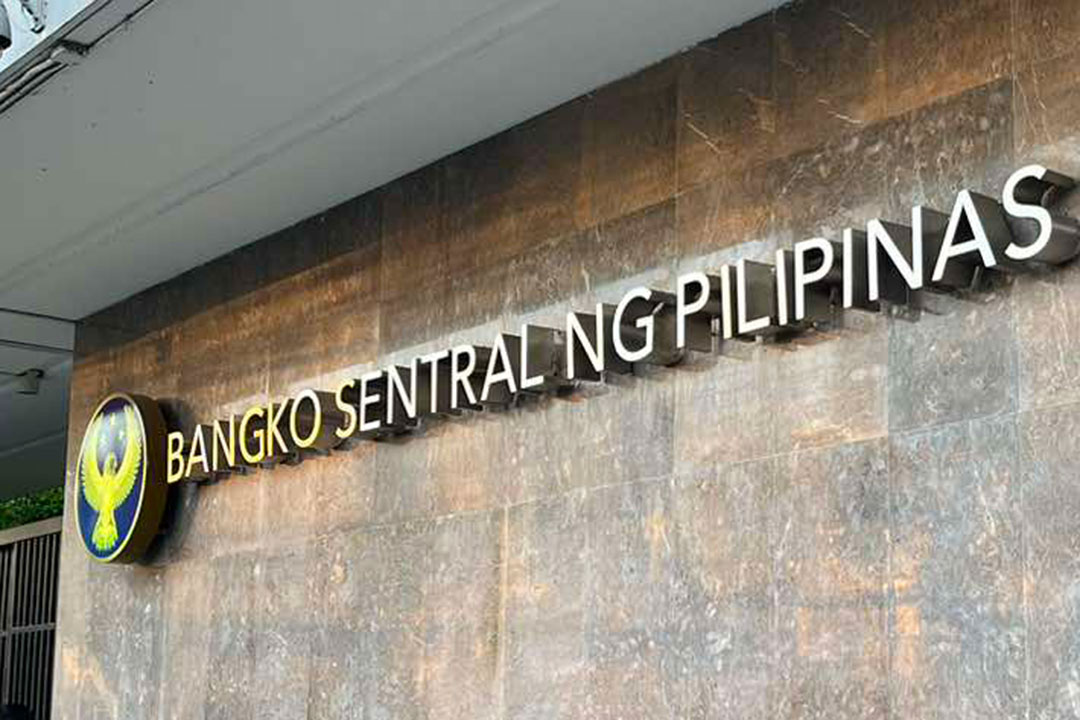Yields on term deposits mixed before BSP meet

YIELDS on the Bangko Sentral ng Pilipinas’ (BSP) term deposits ended mixed on Wednesday as the two-week tenor went undersubscribed before an expected cut in benchmark borrowing costs at the Monetary Board’s meeting on Thursday.
Total bids for the central bank’s term deposit facility (TDF) reached P143.638 billion, just above the P140 billion placed on the auction block but lower than the P151.725 billion in tenders seen last week for a P120-billion offer. The central bank awarded only P119.096 billion in papers.
Broken down, tenders for the seven-day term deposits stood at P94.542 billion, more than the P70 billion placed on the auction block and the P89.438 billion in bids seen last week for the same offer volume. The BSP made a full P70-billion award of the one-week tenor.
Banks asked for yields ranging from 5.1% to 5.5055%, wider than the 5.45% to 5.5125% margin seen last week. This caused the average rate of the one-week term deposits to go down by 2.32 basis point (bps) to 5.4816% from 5.5048% a week ago.
Meanwhile, the 14-day papers attracted bids worth P49.096 billion, well below the P70 billion auctioned off by the BSP and also lower than the P62.287 billion in tenders fetched for the P50 billion on offer last week. The central bank accepted all bids submitted for the tenor.
Accepted rates were from 5.46% to 5.53%, a tad wider than the 5.47% to 5.53% range seen a week ago. As a result, the average yield of the 14-day deposits was unchanged at 5.5138%.
The BSP has not auctioned off 28-day term deposits for more than four years to give way to its weekly offerings of securities with the same tenor.
Both the TDF and BSP bills are used by the central bank to mop up excess liquidity in the financial system and to better guide market yields closer to the policy rate.
Term deposit yields were mixed on Wednesday as the market expects the BSP to cut benchmark interest rates anew at its policy meeting on Thursday, Rizal Commercial Banking Corp. Chief Economist Michael L. Ricafort said in a Viber message.
A BusinessWorld poll showed that 15 out of 16 analysts expect the Monetary Board to cut the target reverse repurchase rate by another 25 bps to 5.25% at this week’s review from the current 5.5%.
The BSP in April resumed its easing cycle with a 25-bp cut following a surprise pause in February amid uncertainties stemming from the Trump administration’s trade policies.
The Monetary Board has now reduced borrowing costs by a total of 100 bps since beginning its easing cycle in August 2024.
BSP Governor Eli M. Remolona, Jr. has said that they may cut rates two more times this year in “baby steps” or increments of 25 bps amid a benign inflation outlook.
Still, TDF rates mostly moved sideways as the ongoing conflict between Iran and Israel and its impact on oil prices and the dollar caused renewed inflation concerns, Mr. Ricafort added, which could affect the central bank’s future policy moves.
Oil prices eased in Asian trade on Wednesday, after a gain of 4% in the previous session, as markets weighed the chance of supply disruptions from the Iran-Israel conflict against a US Federal Reserve rates decision that could impact oil demand, Reuters reported.
Brent crude futures slipped 35 cents or 0.5% to $76.10 a barrel by 0723 GMT. US West Texas Intermediate crude futures fell 23 cents or 0.3% to $74.61 per barrel.
Both had initially been up 0.3% to 0.5% in early trade.
US President Donald J. Trump called for Iran’s “unconditional surrender” on Tuesday.
Israel is running low on defensive “Arrow” missile interceptors, however, raising concerns about its ability to counter long-range ballistic missiles from Iran, the Wall Street Journal reported on Wednesday, citing an unidentified US official.
Analysts said the market was largely worried about supply disruptions in the Strait of Hormuz, a conduit for a fifth of the world’s seaborne oil. — Aaron Michael C. Sy with Reuters



